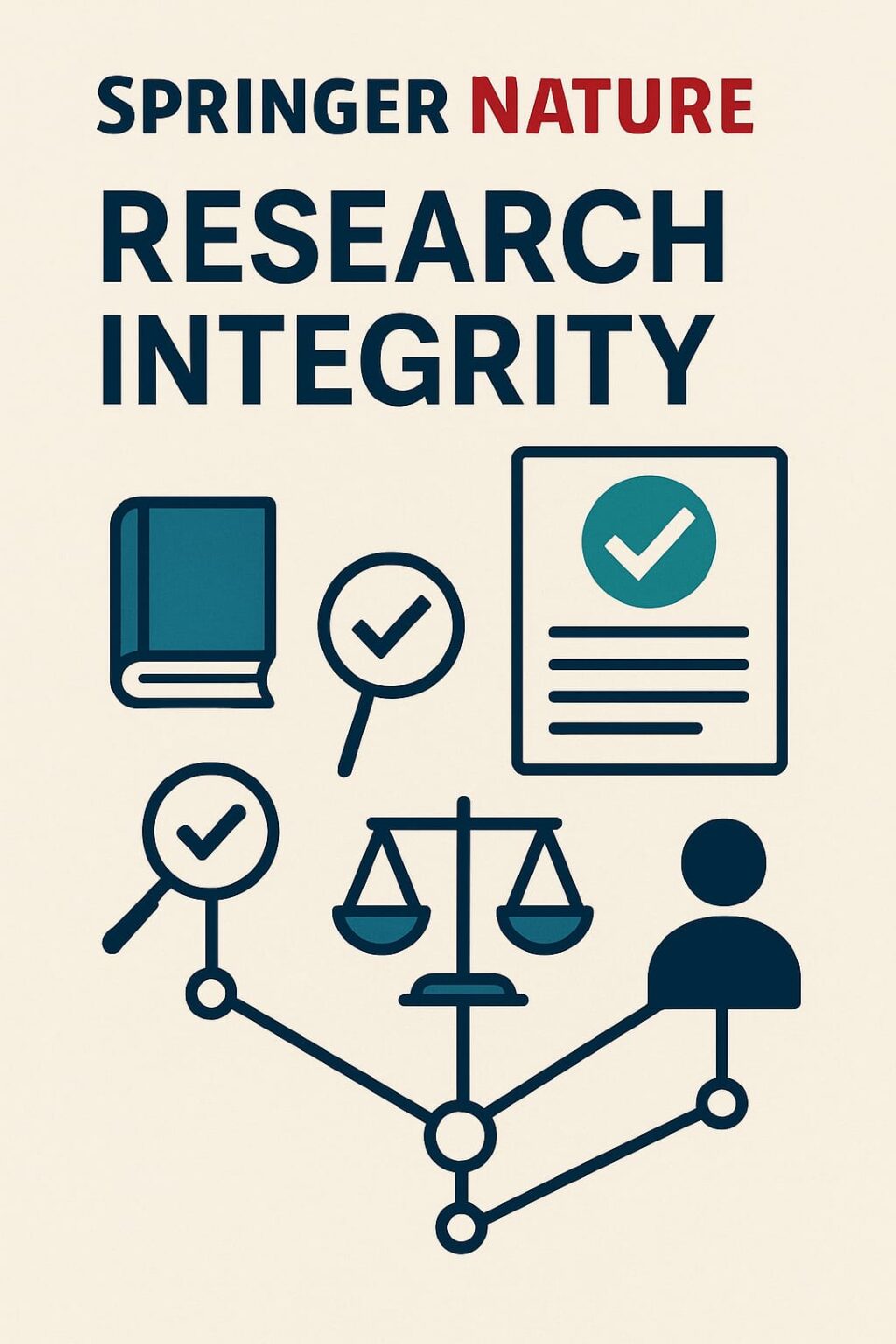Stronger institutional leadership and tailored hybrid training needed to embed research integrity across academia
New Delhi, 29th May 2025: A new white paper from Springer Nature reveals significant disparities across the world in research integrity training, encompassing access, delivery timing, methodology and understanding.
The study was launched today by Nature Editor in Chief Dr Magdalena Skipper and calls for more tailored, accessible, institutionally led support for researchers at all career stages.
Analysis of the results of surveys in Australia, UK, US, India, Japan, China and Brazil, found that whilst the majority of researchers express strong support for mandatory integrity training, access to such training is uneven and few participants are required to demonstrate understanding of the training material.
Integrity is the foundation of reliable research and there is strong international consensus on the need to improve research integrity. Despite this, as highlighted at a Nature symposium in Australia in 2019, little is known about the level of understanding or training offered to researchers in this fundamental area. The national surveys, most run in conjunction with leading research organisations including national academies and funders, were designed to address this gap, exploring how research integrity and good research practices are taught, what topics are covered, and how current training aligns with researchers’ expectations and responsibilities. Key findings include:
- Access to training varies widely: Researchers in China (79%) and Japan (73%) reported the highest access to training across all career levels, followed by Australia (68%), the US (56%), India (53%), the UK (51%), and Brazil (27%). However, access does not necessarily correlate with integrity outcomes—countries with the lowest training access, such as the UK and Brazil, also report the fewest retractions.
- Across all countries, 84–94% of researchers support mandatory research integrity training at some point in their careers.
- Few researchers (7–29%) in any country surveyed are required to demonstrate understanding via a mandatory test to pass; assessments often rely on a simple test of self awareness, in training discussion or group work.
- Training is most commonly directed at post-graduate students and early-career researchers, but there has been broader inclusion of non-academic and of executive staff in China and Japan respectively, potentially signalling institutional commitment.
- Delivery methods differ by region: Most regions reported a mix of online and in-person formats. Japan relies heavily on online-only training, while India favours in-person formats more than other countries.
- In every country, researchers felt that they would benefit from more guidance on authorship. In many countries — Australia, the USA, the UK, and Brazil in particular — researchers expressed a desire to have more training in the curation and sharing of research data.
Launching the white paper, Dr Skipper commented: “While awareness of research integrity is growing, our analysis shows that there remains significant variability in training provided to support researchers. There is a pressing need for a globally consistent, accessible, and rigorous core curriculum in research integrity—complemented by tailored programs that address the specific, immediate needs of individuals and research communities. Institutional leadership should champion the value of this training – it must not become a procedural formality; alarmingly, many respondents voiced concerns that it is often treated as a mere box-ticking exercise.”
The white paper suggests that a hybrid approach would be most beneficial for researchers, providing that it delivers the right balance of consistency in the core curriculum delivered online and practical skills tailored to the immediate needs of their research practice delivered in person. Following the first survey in Australia, Springer Nature developed a free-to-access introductory online course for all researchers on the fundamental principles of research integrity. Since then, we have expanded our range of free-to-access integrity-related resources to support researchers globally in following best practice.
Dr Ed Gerstner, Director of Research Environment Alliances at Springer Nature and author of the white paper, added:
“Training plays a vital role, but not all research challenges can be addressed through training alone. Some needs—such as those related to complex data management—may be better met at an institutional level through direct support from specialists rather than traditional training formats. We’re glad to be able to bring our expertise – in integrity, training, data management and more – into our collaborative work with research institutions, funders, societies and others to better understand the evolving needs of the research community and foster a culture of integrity.”
These surveys provide a baseline upon which to build understanding and assess future activities, as well as providing insight into how to develop integrity training globally. The next phase of Springer Nature’s work is to expand the baseline data with a survey in at least one African country to further develop insights into global variation, as well as to engage with stakeholders in all countries surveyed to further explore the results.

